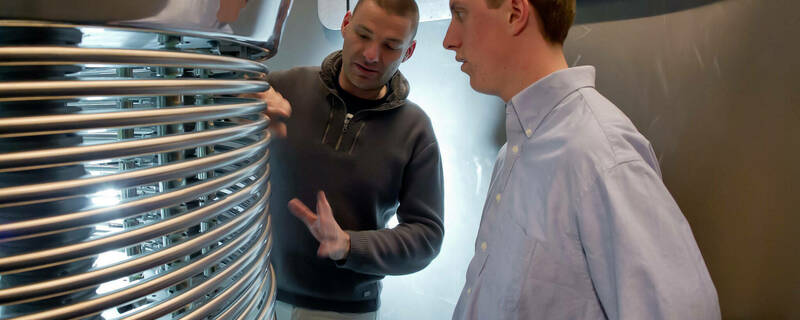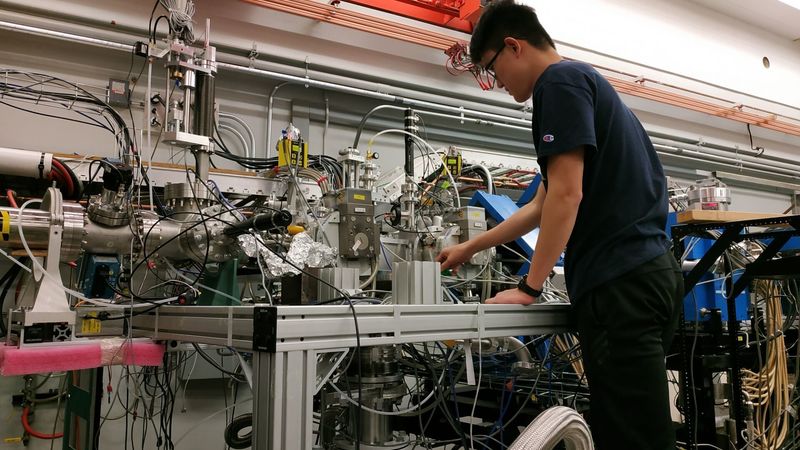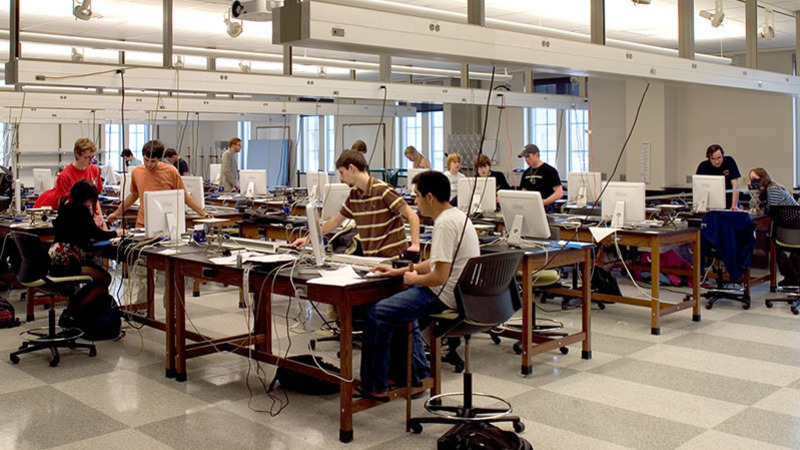
Undergraduate
Undergraduate Program
You know their names—Galileo, Newton, Einstein, and Hawking. They, and scientists like them, explained gravity. They discovered radio waves, x-rays, radioactivity, electromagnetism, superconductivity, and the structure of the atom. And they invented radar, transistors, computers, lasers, MRI’s, electron microscopes, nuclear power, and the Internet. They are physicists. And at the College of Science, you will learn to think like them; you will know some of what they knew. What might you explain, discover, or invent? Find out.
The Department of Physics and Astronomy offers you more than simply an education in physics; it offers a training ground for the mind, a first-class education in the art and science of problem solving.
Undergraduates work with world-class faculty in the University’s excellent campus facilities, as well as in research facilities around the globe, including those in Japan and South America, at the Fermi and Argonne national laboratories in Illinois, and at the European Organization for Nuclear Research (CERN). Notre Dame is also part of an international consortium that funded and manages the Large Binocular Telescope (LBT) in Arizona. With two 8.4 meter diameter mirrors, the LBT is the world’s most powerful telescope and one of its most advanced. Cutting edge research—research that is truly collaborative, interdisciplinary, and international in scope—is carried out in: astrophysics nuclear physics, elementary particle physics, condensed matter and biophysics, atomic physics.
Physics majors choose between three concentrations:
- Advanced Physics
- Astrophysics
- Computing
Women in Physics at Notre Dame (link to YouTube video)
Physics Majors
- The Physics Major: a comprehensive guide of requirements for Physics majors
- Physics Course Descriptions: link to the Undergraduate Bulletin of Information
- Required Science Courses for Physics Majors: link to PDF file
- Required Science Courses for Physics in Medicine Majors: link to PDF file
- Course Planning for 1st Year Students Taking Pre-Calculus: link to PDF file
- American Physical Society/Careers Guide: link to APS website's 2024 digital Careers Guide
Undergraduate Students
- Notre Dame Undergraduate Admissions Information
- Physics Summer Research Positions: Research Experience for Undergraduates (REU)
- Research Experiences and Scholarship Opportunities for Undergraduates at Notre Dame
Problems registering for a physics class?
Contact Kristen Amsler, Undergraduate Program Coordinator, in the Department of Physics and Astronomy and include the following information:
- What is the exact error message you are receiving?
- What is the course CRN?
- What is your ND ID number?
- What is your full name?
Questions about the undergraduate physics program?
Please contact:
Prof. Philippe Collon, Associate Chair and Director for Undergraduate Studies
pcollon@nd.edu or phone 574-631-3540
OR
Kristen Amsler, Undergraduate Program Coordinator
kamsler@nd.edu or phone 574-631-2813

Physics Major
Physics encompasses the study of the universe from the largest galaxies to the smallest subatomic particles.

Physics in Medicine Major
The Physics in Medicine major is designed for those students planning to attend medical school after completion of their degree, or who intend to work or study in the fields of biophysics or biomedical technology.